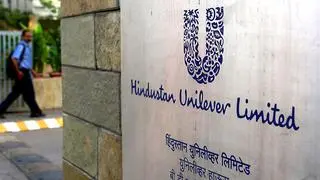As Amazon completes five years of operations in India next month, the e-commerce industry in the country has undergone several major changes, including the sale of its biggest competitor, Flipkart, to Walmart. In an interview with BusinessLine , Amit Agarwal, Senior Vice-President and Country Head of Amazon India, said the industry is in its infancy and the company’s next 100 million customers will come on board much sooner than its first 150 million. Excerpts:
You said you are the leader in e-commerce — is it by sales, customer share, order share, traffic or by user base?
I’m looking at all of these in terms of the things that customers care about most, which is selection, coverage of fast delivery and price competitiveness. I’m also looking at other data such as visits and app downloads — and pretty much all these numbers of competitors were shared in the public domain because of a recent event. So now we know for sure where we stand. I don’t have a way to estimate our market share but because competition numbers — the truthful numbers are out there in the public (domain) — we know for sure that we are the leader.
Will Amazon see itself in offline stores in five years, like your investment in Shoppers’ Stop? Are you also in talks with the Future Group?
We don’t think in terms of offline and online. We ask ourselves what is the customer need and build an experience around it. We already have customers in lower-tier cities walking into an Udaan point, which is an offline store, getting human assistance to shop on Amazon on a monitor which is an online store, order something and pay in cash, which is an offline payment, and get the items delivered to their doorsteps.
What would you call this? I call this ‘working backwards from the customer’. Customers don’t care about online or offline. They care about having access to some help to shop, access to massive selection, being able to pay in cash as they don’t have any other payment method, and having it delivered at their doorsteps. Our current focus is to bring the Shoppers’ Stop selection to Amazon customers. As far as talks with the Future Group are concerned, we don’t comment on speculation.
How are you innovating for India?
At the base level, our focus is on the three most important things — selection, value and convenience. In each of those, we are looking to innovate. Take convenience, for example. We invented the idea of ‘I Have Space’ that allows the corner store or bakery to deliver items on our behalf to our customers. It brings down our costs, increases reliability and gives the stores extra income. That’s an innovation.
Seller Flex is an innovation that came about because we realised in India that many had physical spaces passed on to them for generations. We have given them software to convert their space into zero-cost warehouses, which really allows us to offer fast selection without having to build space. These are innovations from Amazon in India to build great customer experience. We will do a lot more.
With Walmart investing $2 billion in Flipkart, will Amazon double its India investment?
Our investment numbers are always a signal of the traction and potential that we see. Given our long-term vision we will not hold ourselves back by an investment number to serve customers.
When do you see Amazon.in getting profitable? Will your push on private labels help you get there faster?
Profitability is about a business model that is sensible. Our investments in logistics and technology — that systematically reduces seller costs — allow them (sellers) to afford both low prices and yet give us fees. That is the sustainable way to profitability, not by discounting.
We have always built our services at scale to be sustainable. Private label is an initiative that allows customers to access great selection at a great value. If we do a good job of it, it will improve the economics because we have a better control over the entire supply chain.
We have already launched many private labels like Solimo, Vedika, Myx, Symbol, 10.or, AmazonBasics, etc, and will launch many more but they have to earn their right to be launched. Many of them are already in the top three in their categories.
When will Indians customers shop online for convenience and not for discounts?
We are already seeing that on Amazon. The fact that millions of Prime members are paying ₹999 a year, in such a short time since it was launched, is proof of that. Customers care about convenience when the basic service is good.
When it is not reliable, they want to eke out as much value as they can in that transaction. It’s a function of building a great enduring service.
Any regrets on not acquiring Flipkart?
We don’t comment on speculation.
How do you look at Walmart entering India?
I can only talk about our approach. The good part about building our culture and strategy which is pivoted on customer and things they care about, not around competitors, technology flavour of the day, or the investment flavour of the day, is that you can continue doing what you are doing without getting distracted. What we have done for the last five years we will continue to do in the next five years.








Comments
Comments have to be in English, and in full sentences. They cannot be abusive or personal. Please abide by our community guidelines for posting your comments.
We have migrated to a new commenting platform. If you are already a registered user of TheHindu Businessline and logged in, you may continue to engage with our articles. If you do not have an account please register and login to post comments. Users can access their older comments by logging into their accounts on Vuukle.